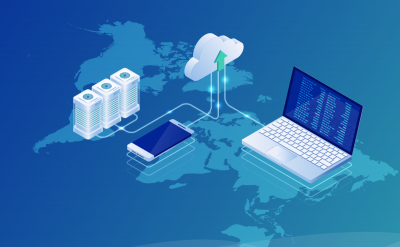Leaders shouldn’t treat ‘Data as oil,’ they should treat it as nuclear material. As the businesses move toward harnessing the best insights from data using different technologies, inevitably, many of the businesses make the mistake of either making a decision between a data insight for revenue or doing the right thing. From influencing the US elections to showing the wrong results for the search term, data can be objectified in the wrong light. Over the last year, a bunch of legalities have been introduced for data protection to protect the privacy of citizens. GDPR and CCPA being one of them, organizations around the world are willingly adjusting their data collection and storage to satisfy the above 2 laws.
As the data protection law is taking shape around the world, a debate surrounding the legal protection of data is raging on. If data is created or originated from a country, should it be subject to that law, or should a cloud platform hosting the data from multiple countries should be segregated? Partitioned? Or should the complete infrastructure be divided and distributed across a different geographical area? In recent months, leaders and politicians are seeking to stake claims across various territories.
The Federal Minister for Economic Affairs and Energy of Germany Peter Altmaier said in a speech last July that the country has claims to digital sovereignty. It’s also important for them that the cloud solutions are just not created in the US.
Turnkey Balkanization is just one of the phrases that are being used to describe the growing challenge of data reorganization. The concept completely changes the data center’s location spot for the businesses, wherein each data center location is considered as a single block and is subject to all the other potential laws of business. So a data belongs to the authorities governing that region where data is created. The rising fault lines have created many of the international consequences, which will lead to the rise of IT world blocks. If we consider the legal term, data sovereignty refers to the application of different laws and regulations to the protection of data based on where data is generated and stored.
The German economy minister had already stated the need for data sovereignty for the country. A policy was produced recently by his department, introducing something called Gaia-X, it sets the tone of the project for Europe and various cloud service providers to introduce different data infrastructure to ensure data sovereignty. The initial translation of the report in the English language gave us an overview of the solutions that various cloud providers might have to see in the near future.
Project GAIA-X sets provision for the federalized structuring of the infrastructure services. It is focused on cloud and edge instances to transform them into a homogenous and user-friendly system. The combined form of data infrastructure results in strengthening both digital sovereignty for the source of different cloud services to promote scalability and competitive position of European cloud-service providers.
The project even created confusion in words- Sovereignty or Autonomy, based on their translation from German to the English language; while there is a distinct difference between them. Even the words Federalized and Federated create bigger confusion as the translators move along. Though the current confusion about the law would exist until something substantial is created or developed, nothing can be certain.
Recently, the German economy minister offered a definition for the Gaia-X- ‘European, sovereign, and networked data infrastructure.’ Though, with the definition, it seems that it’s not just for the complete technological system. EuroCloud’s, one of the organizations that certifies the European service providers for compliance with the EU laws, Director Andreas Weiss said in a statement that the concern for most of the European industry leaders is the data collected from different endpoints, and retaining control over the data assets. The original intent of the Gaia-X would be to establish a complete hyperscale for the cloud services, while the project has completely evolved into something else.
Marko Insights Analyst Kurt issued a statement on Turnkey Balkanization saying that the data sovereignty law is not just about Balkanizing, so much as creating an added overhead for the dominant US operators who are responding by providing European facilities and updating storage services to provide regional control over the data placement.
Conclusion
Data sovereignty demand from the governing authorities will be a new challenge that many cloud providers might have to face in the next decade as the demand for data localization increases. However, will the sovereignty positively affect data privacy, or will it be only for the governance…this still needs to be observed. To know more about the data center technology, you can download our latest whitepapers on Datacenter.








































































